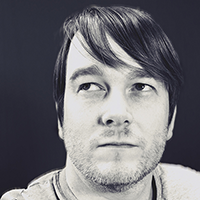Where do new thoughts go while creating literature notes?
Here are the simple options you have if you have an idea when creating literature notes but don't know where to place it.

I was presented with a recent question by a member of my Discord channel when applying the Zettelkasten note-taking method.
I had a question regarding when to know when to make a literature note versus a permanent note.
When I am consuming a source, it becomes very apparent that it should be a literature note. But say a thought comes to mind, related to the source the line becomes very difficult.
Do you have a definition of "literature note" & one for "permanent note" such that I can use it as a guide. Thanks again for all your work!
I love questions like this as we get to go on a journey of discovery along the way. I think simply, this question might just be "What do you do with ideas that come into your head when creating your literature notes?"
Before we dive into this, let's recap on what my definitions of Fleeting notes, Literature notes, and Permanent notes are.
- Fleeting Notes—These are the raw, unprocessed notes you create. They can be ad-hoc ideas recorded in your Apple notes app, or the highlights and annotations you make when reading a book. They serve as a way to filter the noise and focus on the key points ready for understanding later in your literature notes.
- Literature Notes—These are atomic notes you create that help you understand what the author (or you) meant from the fleeting notes. You'll break down each concept into a single idea and create many literature notes for a given piece of work you're studying.
- Permanent Notes—This is your collection of final atomic notes that express your understanding across all topics and study material. You use this to reflect on the ideas holistically allowing you to resolve differences in opinions from different authors, and express your own original thinking from what you've been learning.
Creating Fleeting Notes
These can be created using many different note-taking techniques. I personally like the outline method where you create bullet points for all the key points of the study material. You can create hand written notes, highlights in the Kindle app or just jot down a sentence or two from your own thoughts.
A single fleeting note could be as complex as all the things you captured from a whole book, or as simple as a voice memo from an idea you had while out walking.
Creating Literature Notes
Take a fleeting note. Your goal is make sure you really understand it. Break down the content into individual ideas. This is often the hardest part when performing the Zettelkasten method. It's hard to see what a literature note should include and how granular you should make it. See Finding the right granularity in your Zettelkasten notes if you're curious about this.
A good template to get your started for each literature note is as follows:
- What did the author say?—This helps you capture a quote from them or write about their point of view.
- Do I agree with what they said?—This tests your understanding to the point you either agree or disagree.
- Why do I [agree/disagree]?—Make sure you’re clear in your thinking. Maybe you have more questions, maybe the author’s logic is flawed, or maybe you have seen evidence of this in other areas to support their argument.
- What else does it relate to?—Is there a related backdrop to the argument, a history to provide context, or is this closely related to other literature notes you're working on?
Creating Permanent Notes
You've finished studying a source material and have a collection of literature notes on it. For example, if I've just read the book Why We Sleep by Matthew Walker, I will have a collection of literature notes recreating my understanding of the topic from the perspective of Matthew Walker.
Next you want to bring each literature note into your main set of permanent notes. You want to reflect on each literature note and consider how it impacts the notes you already have in your system. You'll have new ideas and will create intermediary notes that join two concepts together. You'll resolve any conflicts, such as whether Matthew Walker's point of view disagrees with other authors about Sleep.
The finished state is a snapshot in time of your understanding and original ideas of all the topics you've covered.
What if I have a new thought while creating Literature notes?
So, you're creating your literature notes and the magic happens, a new idea pops into your head. Where does it go? Do you break your flow of creating literature notes or is there a way to handle this?
All good questions. This is how I would approach it which you may find useful:
- Is the thought related to the literature notes you're creating? If so, then create a new literature note and link the related notes to it. This means you can attribute this thought to the study of this specific piece of work.
- Is this thought unrelated to the literature notes you're creating?
- Then it might be a new fleeting note inspired by a given literature note. I say fleeting note because it's probably still a raw idea that you just want to capture and deal with it later.
- However, if you want to fully express the idea as an atomic note, then by all means, jump ahead to your permanent notes and place it in. Just be mindful that you're jumping between workflow states here—you're moving from understanding work via literature notes, to reflecting and synthesising new ideas in your permanent notes. Just don't get too distracted if you can help it.
Hopefully this gives an idea of what to do when you have ideas when creating literature notes. It can be hard to know what to do, but my personal answer is, it depends, which I hope now you have a framework to use when knowing where to place the new thought in your Zettelkasten system.

If you found this article interesting and want to go deep and learn how to use the Zettelkasten method to not just improve your note-taking, but also make you an expert level thinker, then check out my book Atomic Note-Taking.

